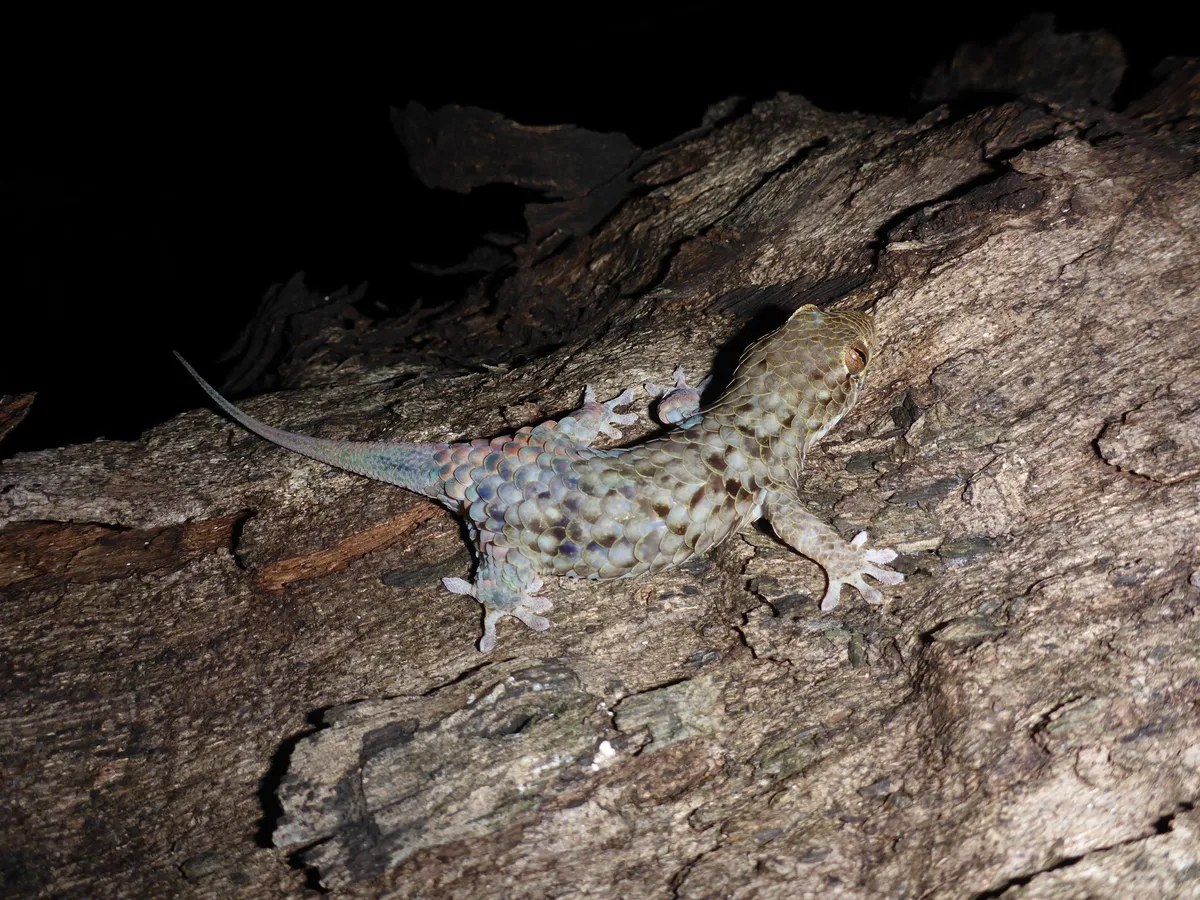Researchers have found a new gecko species, Geckolepis megalepis, which is able to easily lose both its scales and a layer of skin to avoid predation.
G.megalepis is not unique in its ability to shed its skin so easily, this trait is shared by all five species in the Geckolepis genus.
However, G.megalepis is distinctive due to the size of its scales, which are the largest of any gecko species.

“What happens in Geckolepis is that the scales go a bit into the skin,” said lead researcher Mark Scherz. “The skin is attached by a thin layer of myfibroblasts to the underlying connective tissue.”
“When the gecko is grasped, something happens that causes this connection to break, and the scales with the skin come away completely, leaving the connective tissue exposed.”
The first specimens of this gecko were collected during a survey to assess biodiversity of the local area, and genetic analysis revealed that it was a new species.

Main image: When grasped by a predator, fish-scale geckos lose not just their scales but also a layer of skin. © Frank Glaw


